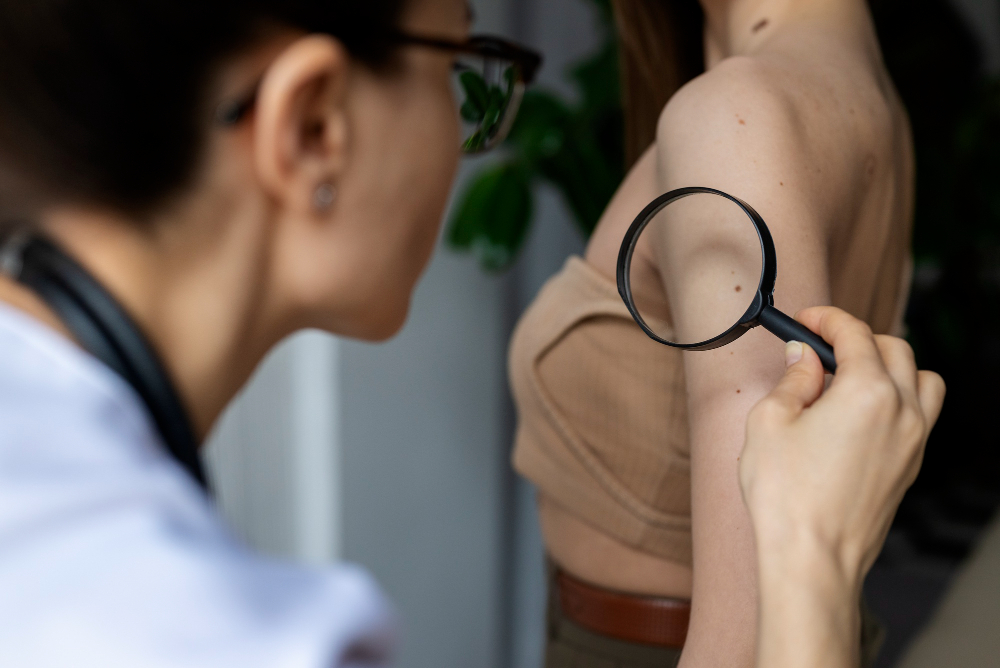
Finding a tick embedded in your skin can be alarming, especially when you're aware of the potential risks associated with Lyme disease. If you're experiencing symptoms or have concerns about tick exposure, you might wonder whether an urgent care clinic can provide the care you need.
The good news is that urgent care centers are well-equipped to handle Lyme disease concerns, from initial tick removal to symptom evaluation and treatment. These facilities offer a convenient alternative to emergency rooms for non-life-threatening conditions, providing prompt medical attention when your primary care physician isn't available.
Understanding when and how to seek urgent care for Lyme disease can help you get the treatment you need quickly, potentially preventing the progression of this tick-borne illness to more serious stages.
Lyme disease is a bacterial infection transmitted through the bite of infected blacklegged ticks, also known as deer ticks. The disease is caused by the bacterium Borrelia burgdorferi and is most common in the northeastern, mid-Atlantic, and north-central United States.
The infection typically progresses through three stages if left untreated. Early localized Lyme disease usually appears within 3-30 days after a tick bite, often presenting with the characteristic "bull's-eye" rash called erythema migrans. This rash appears in approximately 70-80% of infected individuals and gradually expands outward from the bite site.
Early symptoms may also include fever, chills, headache, fatigue, muscle and joint aches, and swollen lymph nodes. If not treated promptly, the infection can spread to other parts of the body, potentially affecting the heart, nervous system, and joints.
Several situations warrant immediate medical attention at an urgent care facility. If you discover a tick attached to your skin, prompt removal is crucial. While you can remove ticks yourself using fine-tipped tweezers, urgent care professionals can ensure complete removal and provide guidance on next steps.
You should seek urgent care if you develop a rash at the tick bite site, especially if it expands over time or resembles a bull's-eye pattern. Early treatment is most effective, so don't wait to see if symptoms worsen.
Other symptoms that warrant urgent care include persistent fever, severe headaches, neck stiffness, facial paralysis, or joint pain and swelling. These may indicate that the infection has progressed beyond the early stage.
If you've been in an area known for tick activity and develop flu-like symptoms, it's worth getting evaluated even if you don't recall being bitten. Tick bites can be painless and easy to miss, particularly if the tick was very small.
When you visit an urgent care clinic for Lyme disease concerns, the medical team will conduct a thorough evaluation of your symptoms and medical history. They'll ask about recent outdoor activities, travel to tick-endemic areas, and when symptoms first appeared.
The healthcare provider will perform a physical examination, paying particular attention to any rashes or bite marks. They'll look for the characteristic erythema migrans rash and check for other signs of infection such as fever or swollen lymph nodes.
If you still have the tick attached or if you brought the removed tick with you, the medical team can identify the species and determine if it's capable of transmitting Lyme disease. This information helps guide treatment decisions.
In the early stages of Lyme disease, diagnosis is primarily based on clinical symptoms and known tick exposure. Blood tests for Lyme disease antibodies may not be immediately positive, as it takes time for the body to develop detectable antibodies.
If you present with the characteristic rash and a history of possible tick exposure, urgent care providers will likely begin treatment without waiting for test results. Early treatment is most effective and can prevent the infection from progressing to more serious stages.
The standard treatment for early Lyme disease typically involves a course of oral antibiotics, most commonly doxycycline for adults and children over 8 years old. Alternative antibiotics may be prescribed for pregnant women or children under 8.
Treatment duration usually ranges from 10-21 days, depending on the stage of infection and specific circumstances. The urgent care provider will give you detailed instructions about taking the medication and what to expect during treatment.
Urgent care providers will also discuss prevention strategies to reduce your risk of future tick bites. This includes wearing protective clothing when in wooded or grassy areas, using EPA-approved insect repellents, and performing daily tick checks after outdoor activities.
They'll advise you on proper tick removal techniques and when to seek medical attention for future tick encounters. Creating a tick-safe environment around your home by keeping grass short and removing leaf litter can also reduce tick populations.
Follow-up care instructions will include monitoring for new or worsening symptoms and returning for evaluation if your condition doesn't improve with treatment. Most people recover completely when Lyme disease is treated promptly with appropriate antibiotics.
When choosing an urgent care clinic for Lyme disease concerns, consider factors such as location, hours of operation, and the facility's experience with tick-borne illnesses. Look for clinics that accept your insurance and offer convenient scheduling options.
Some urgent care centers provide online check-in services, allowing you to reserve your spot and reduce waiting time. This can be particularly helpful when you're not feeling well and want to minimize time spent in waiting rooms.
Lyme disease is a serious condition that requires prompt medical attention, but it's also highly treatable when caught early. Urgent care clinics provide an accessible option for evaluation and treatment, especially when you can't wait for a primary care appointment.
Don't hesitate to seek medical attention if you suspect you may have been exposed to Lyme disease or are experiencing concerning symptoms. Early intervention can make a significant difference in your recovery and help prevent long-term complications.
If you're looking for an urgent care clinic in Philadelphia, PA, contact Vital Urgent Care today to schedule a consultation. Their experienced medical team is equipped to handle Lyme disease concerns and provide the prompt, professional care you need to protect your health.